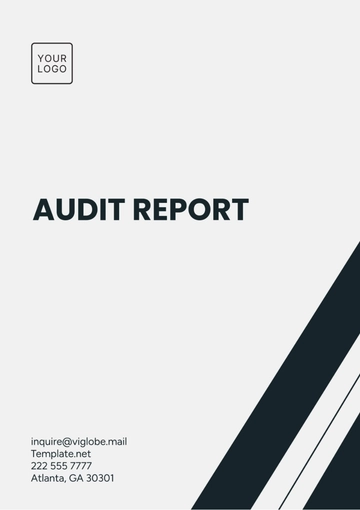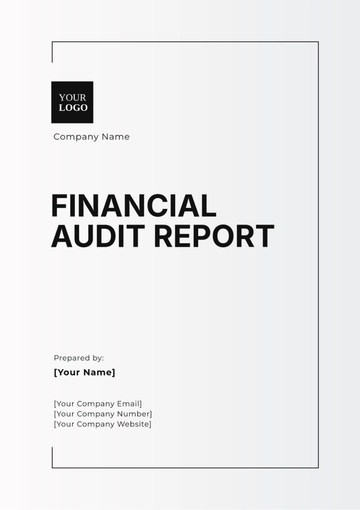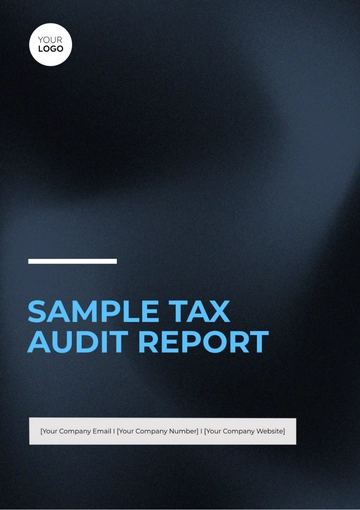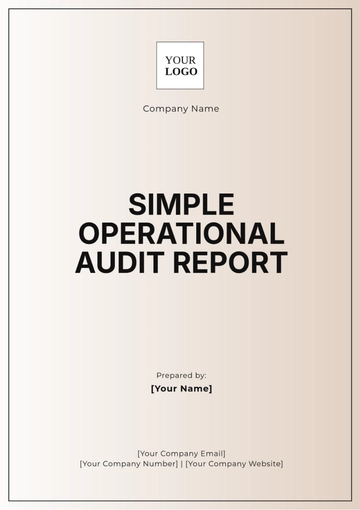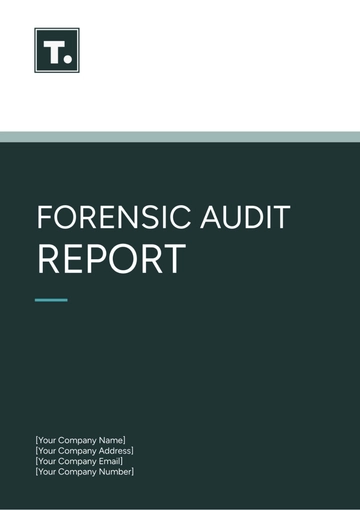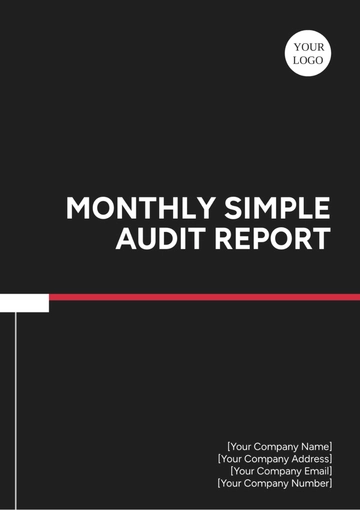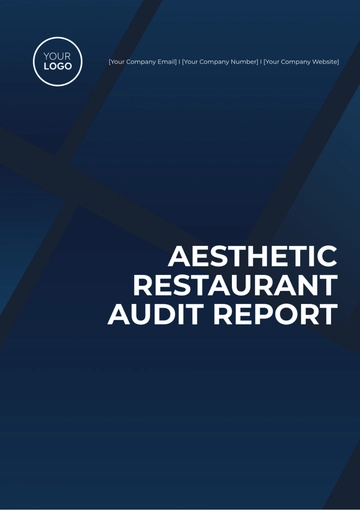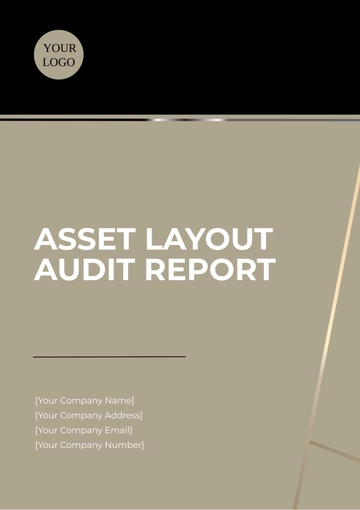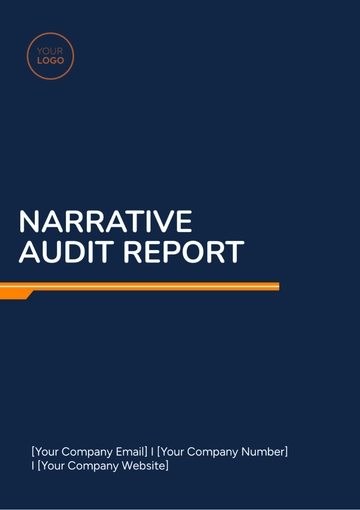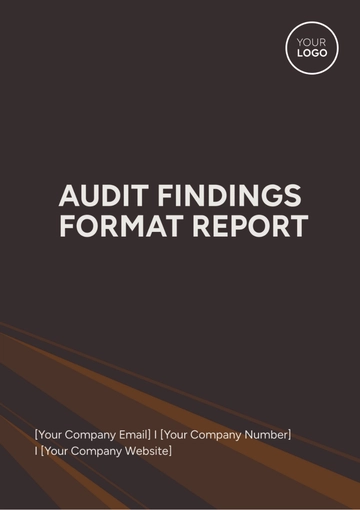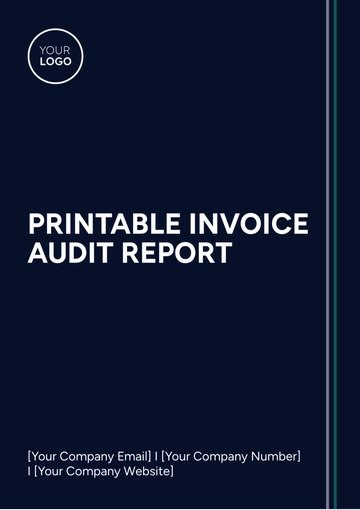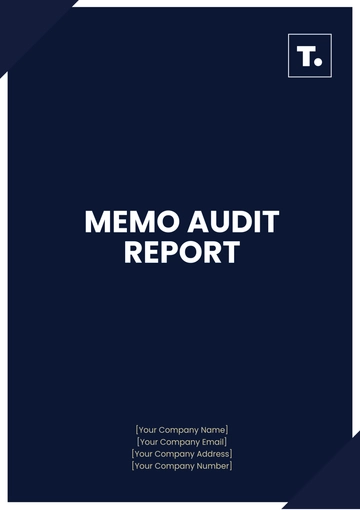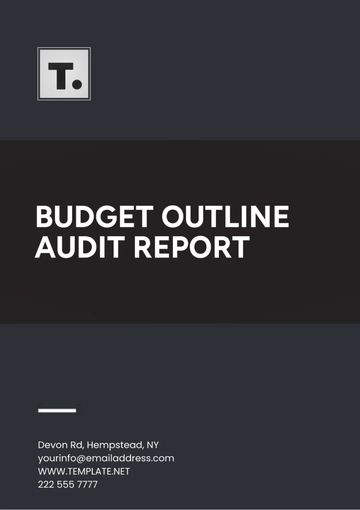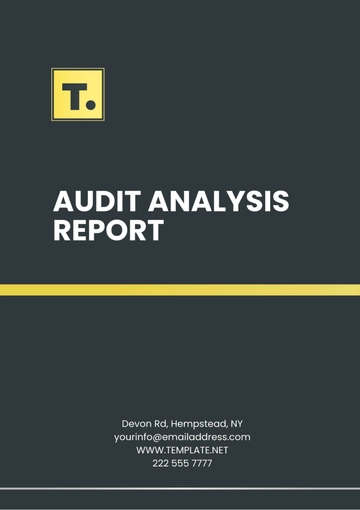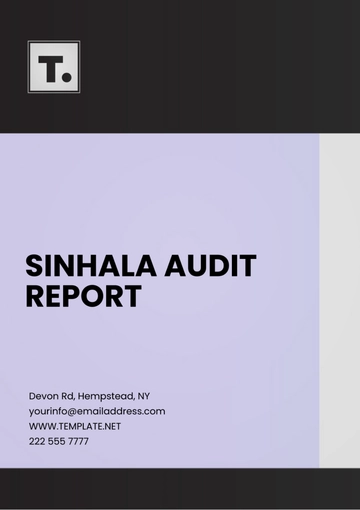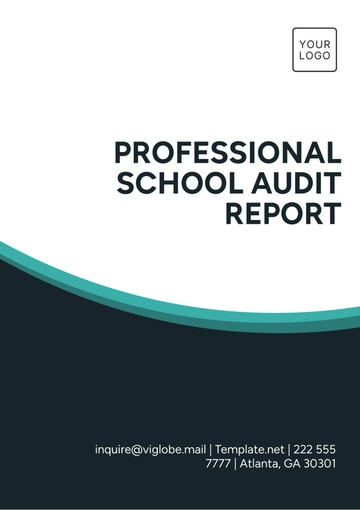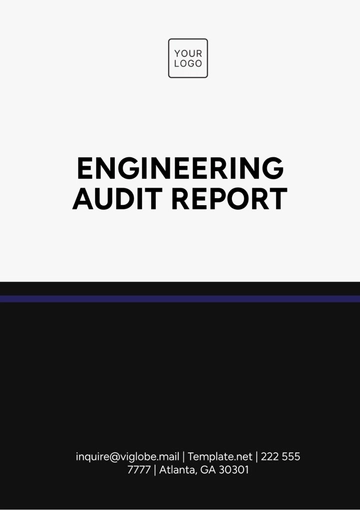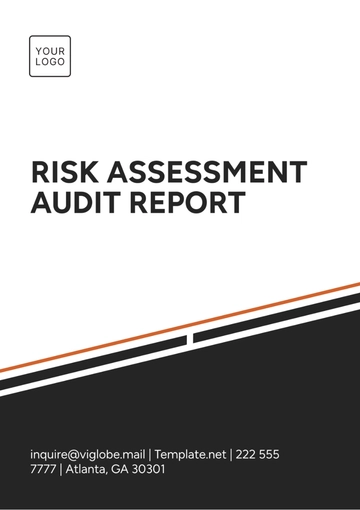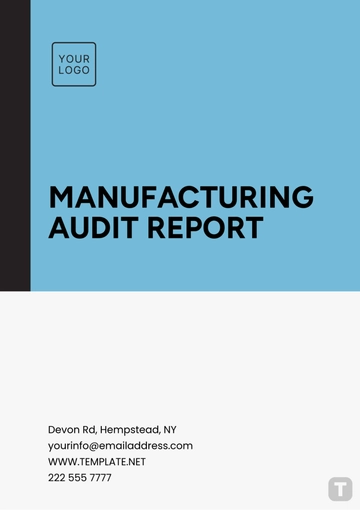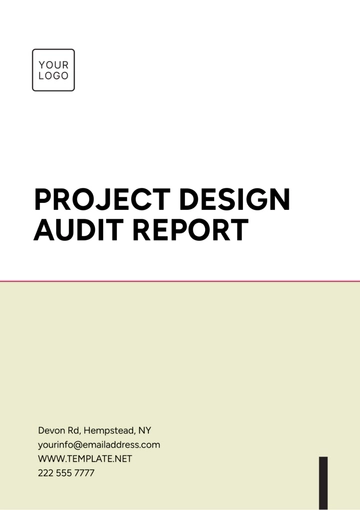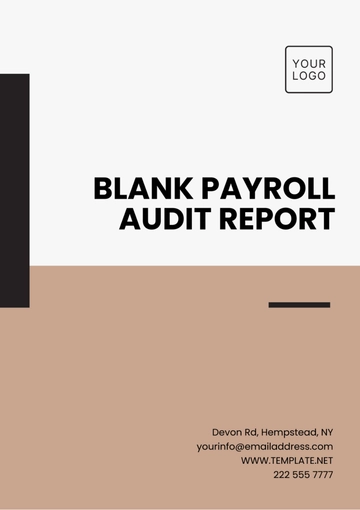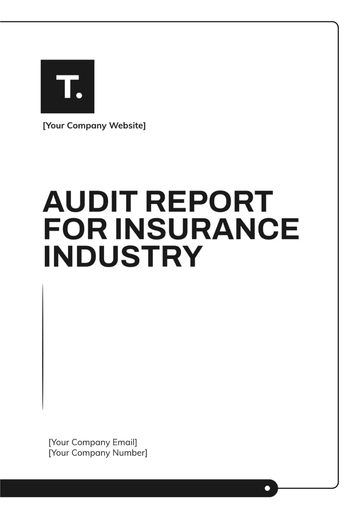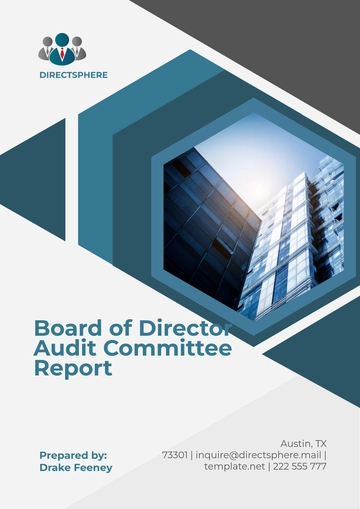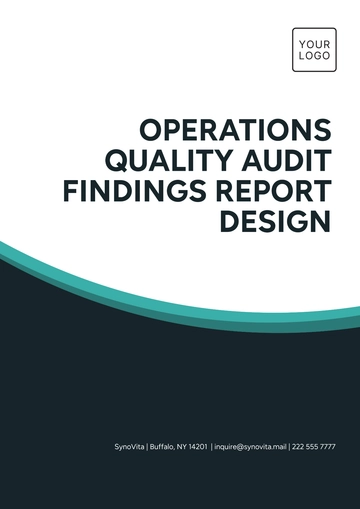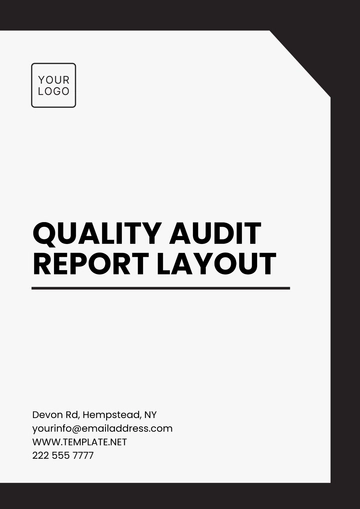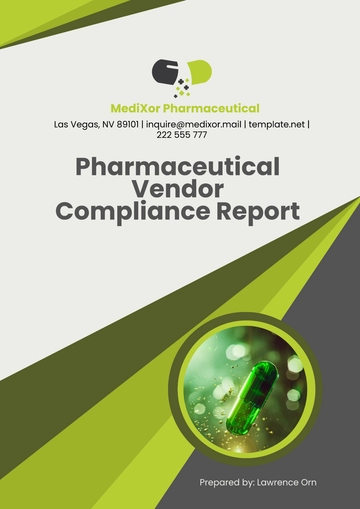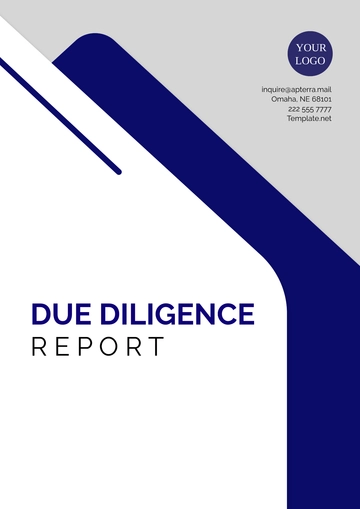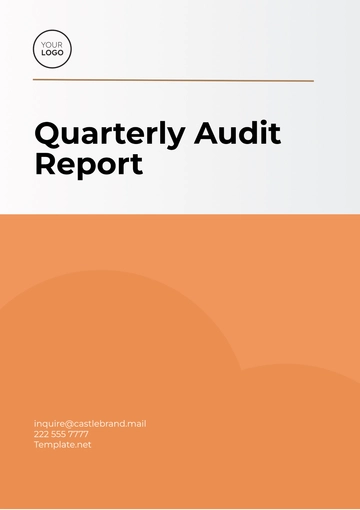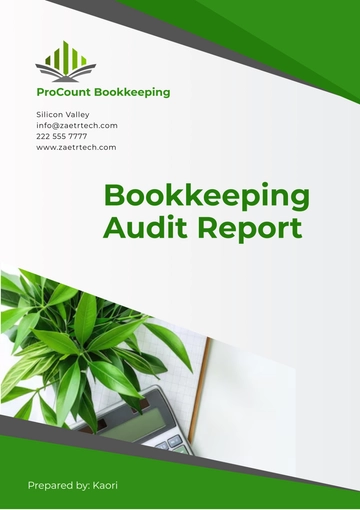Free Startup HR Compliance Audit Report
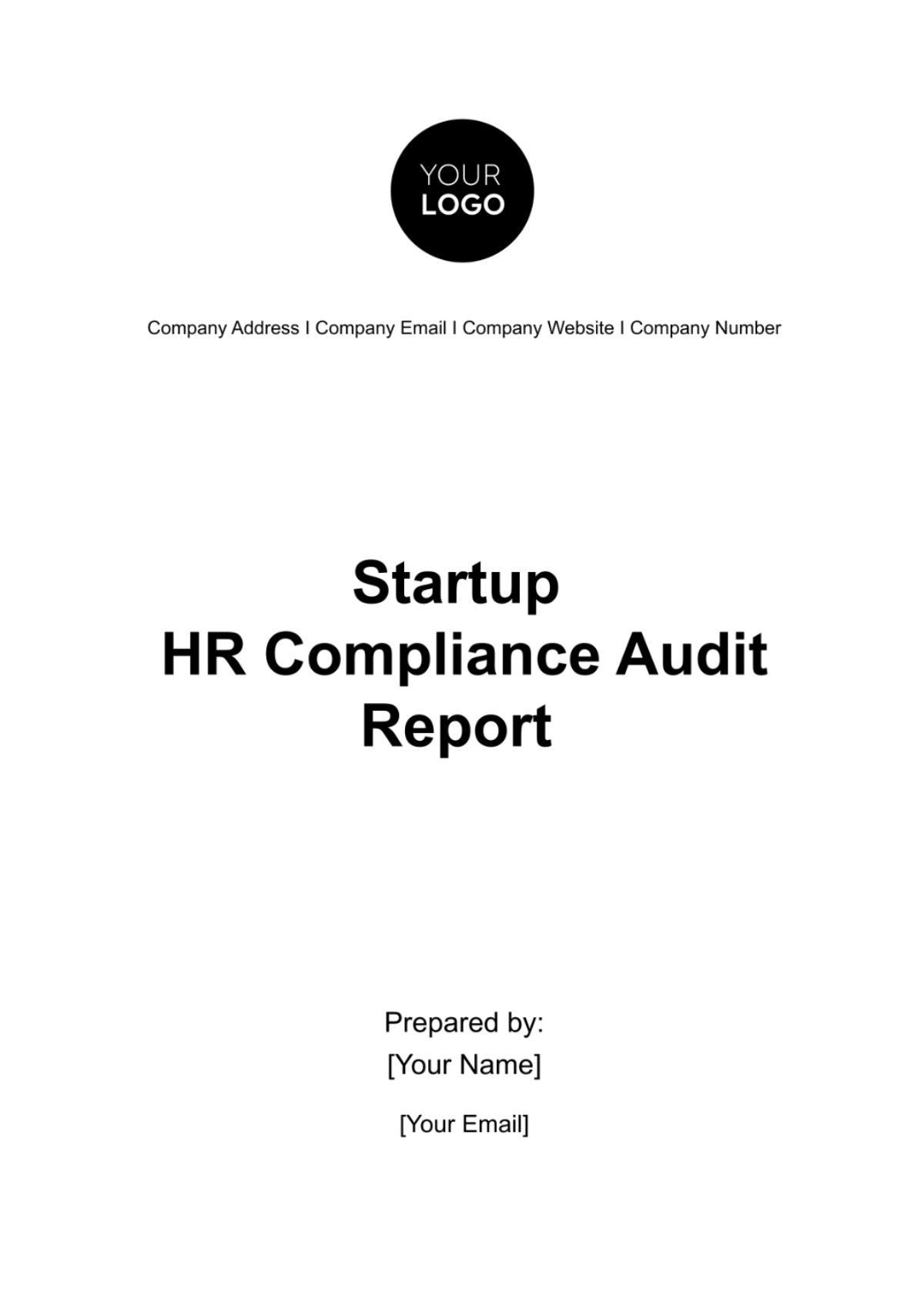
1. Employee Classification and Compensation
Assessment and Observations
An evaluation was conducted on the company's practices concerning employee classification and compensation. This review uncovered that all employees and contractors are correctly classified following federal and state laws. The compensation practices comply with minimum wage requirements, overtime, and equal pay laws.
The table below presents the overview of the company's adherence to classifications and compensation laws.
Aspect | Status |
|---|---|
Correct Classification | Compliant |
Minimum Wage | Compliant |
Overtime Pay | Compliant |
Equal Pay | Compliant |
Total | 100% Compliance |
2. Recruitment and Hiring Practices
Assessment and Observations
The recruitment and hiring practices of the startup were found to be fair and non-discriminatory. They are aligned with all the applicable labor laws. The processes for job postings, interviewing, background checks, and onboarding are strictly followed and show no disparity.
Below is an overview of the company's recruitment and hiring practices adherence to labor laws.
Aspect | Status |
|---|---|
Job postings | Compliant |
Interview Process | Compliant |
Background Checks | Compliant |
Onboarding | Compliant |
Total | 100% Compliance |
3. Employee Records and Information Management
Upon review, the startup demonstrates robust practices in collecting and storing employee data with adequate security measures in place. However, improvements are needed in access control and employee awareness:
Section | Compliance Status | Recommendations |
|---|---|---|
Data Collection | Compliant | None required. |
Access Control | Partially Compliant | Implement role-based access controls. |
Employee Training | Partially Compliant | Introduce quarterly data protection training. |
Privacy Laws | Compliant | None required. |
Data Disposal | Compliant | None required. |
Employee Records | Compliant | None required. |
4. Benefits and Leave Policies
This section evaluates the startup's administration of benefits and leave policies, ensuring compliance with federal and state laws. It covers health insurance, retirement plans, Family and Medical Leave Act (FMLA) compliance, parental leave, and other related policies.
Compliance Summary Table
Policy Type | Compliance Status | Notes/Actions Required |
|---|---|---|
Health Insurance | Compliant | None required. |
Retirement Plans | Compliant | None required. |
FMLA | Partially Compliant | Review and update FMLA policies for full compliance. |
Parental Leave | Compliant | None required. |
Other Leave Policies | Partially Compliant | Ensure alignment with state-specific leave laws. |
5. Performance Management and Termination Procedures
Performance Management and Termination Procedures are crucial for maintaining a fair, transparent, and legally compliant workplace. This segment of the HR Compliance Audit Report evaluates the startup's processes for assessing employee performance and executing terminations, ensuring they align with best practices and legal requirements.
Properly structured termination procedures minimize legal risks and maintain a positive workplace atmosphere, underscoring their importance in HR management.
The following are the steps in termination procedure:
Conduct Performance Review ↓ Document Performance Issues ↓ Communicate Decision Clearly ↓ Finalize Termination Paperwork ↓ Conduct Exit Interview |
6. Workplace Safety and Health
The Workplace Safety and Health audit reveals the startup's solid commitment to maintaining a safe working environment, aligning closely with Occupational Safety and Health Administration (OSHA) standards. Key areas such as emergency preparedness and hazard communication meet the required compliance levels, reflecting the company's proactive approach to health and safety.
However, the audit identifies room for improvement in ergonomics and ongoing safety training programs. Addressing these aspects will not only enhance compliance with OSHA guidelines but also contribute to a healthier, more productive workplace. The company is encouraged to develop targeted strategies to address these gaps, ensuring a comprehensive safety and health framework that supports employee well-being and regulatory adherence.
7. Labor Relations
This section assesses the startup's compliance with labor laws related to unionization, collective bargaining agreements, and employees' rights to organize. Ensuring adherence to these regulations is crucial for maintaining a fair and legally compliant workplace environment.
Compliance Summary Table
Aspect | Compliance Status | Notes/Actions Required |
|---|---|---|
Unionization Rights | Compliant | None required. |
Collective Bargaining | Compliant | None required. |
Employee Organizing Rights | Partially Compliant | Review policies to ensure full compliance with employee organizing rights. |
8. Anti-discrimination and Harassment Policies
This segment of the HR Compliance Audit Report evaluates the startup's policies and practices against discrimination and harassment in the workplace. Ensuring robust anti-discrimination and harassment policies not only aligns with legal requirements but also fosters a respectful and inclusive work environment.
Policy Development and Implementation
Comprehensive Policies: Policies comprehensively cover all forms of discrimination and harassment.
Regular Updates: Policies are regularly reviewed and updated to reflect current laws.
Training and Awareness
Mandatory Training: All employees undergo regular training on these policies.
Awareness Programs: Continuous awareness programs reinforce the importance of a respectful workplace.
Reporting Mechanisms
Clear Reporting Procedures: Employees have clear, confidential channels for reporting incidents.
Retaliation Protection: Policies ensure protection against retaliation for those who report.
Investigation Procedures
Prompt Investigation: Reports of discrimination or harassment are promptly and thoroughly investigated.
Fair Resolution Process: Ensures fair and appropriate action is taken.
Monitoring and Compliance
Regular Audits: Regular audits assess policy adherence and effectiveness.
Feedback Loop: Employee feedback is encouraged and used to improve policies.
9. Employee Training and Development
Employee Training and Development is a vital area within HR that focuses on enhancing the skills, knowledge, and capabilities of employees. This section of the HR Compliance Audit Report examines the startup's commitment to continuous learning and professional growth opportunities for its workforce. By investing in training and development programs, the company not only boosts employee morale and job satisfaction but also ensures its team remains competitive and compliant with industry standards and regulations.
The audit assesses the availability, accessibility, and relevance of training programs, including mandatory compliance training, skill enhancement workshops, and career development initiatives. It looks at how these programs are integrated into the employee lifecycle, from onboarding to ongoing career progression. Effective training and development strategies are key to fostering a culture of continuous improvement, innovation, and regulatory compliance, positioning the startup for long-term success.
10. Conclusion
In conclusion, this report illustrates the company's well-structured policies and practices to comply with laws and regulations, maintain a positive work environment, and mitigate potential risks. As a part of continuous improvement, this audit will be conducted periodically to ensure adherence to regulations and embrace the best HR practices for the company's sustainable growth.
- 100% Customizable, free editor
- Access 1 Million+ Templates, photo’s & graphics
- Download or share as a template
- Click and replace photos, graphics, text, backgrounds
- Resize, crop, AI write & more
- Access advanced editor
Ensure your startup meets all HR legal requirements with the Startup HR Compliance Audit Report Template from Template.net. This indispensable tool is both editable and customizable, making it easy to tailor to your startup's specific needs. Simplify your compliance audits by editing this template in our Ai Editor Tool, securing peace of mind in HR compliance.
You may also like
- Sales Report
- Daily Report
- Project Report
- Business Report
- Weekly Report
- Incident Report
- Annual Report
- Report Layout
- Report Design
- Progress Report
- Marketing Report
- Company Report
- Monthly Report
- Audit Report
- Status Report
- School Report
- Reports Hr
- Management Report
- Project Status Report
- Handover Report
- Health And Safety Report
- Restaurant Report
- Construction Report
- Research Report
- Evaluation Report
- Investigation Report
- Employee Report
- Advertising Report
- Weekly Status Report
- Project Management Report
- Finance Report
- Service Report
- Technical Report
- Meeting Report
- Quarterly Report
- Inspection Report
- Medical Report
- Test Report
- Summary Report
- Inventory Report
- Valuation Report
- Operations Report
- Payroll Report
- Training Report
- Job Report
- Case Report
- Performance Report
- Board Report
- Internal Audit Report
- Student Report
- Monthly Management Report
- Small Business Report
- Accident Report
- Call Center Report
- Activity Report
- IT and Software Report
- Internship Report
- Visit Report
- Product Report
- Book Report
- Property Report
- Recruitment Report
- University Report
- Event Report
- SEO Report
- Conference Report
- Narrative Report
- Nursing Home Report
- Preschool Report
- Call Report
- Customer Report
- Employee Incident Report
- Accomplishment Report
- Social Media Report
- Work From Home Report
- Security Report
- Damage Report
- Quality Report
- Internal Report
- Nurse Report
- Real Estate Report
- Hotel Report
- Equipment Report
- Credit Report
- Field Report
- Non Profit Report
- Maintenance Report
- News Report
- Survey Report
- Executive Report
- Law Firm Report
- Advertising Agency Report
- Interior Design Report
- Travel Agency Report
- Stock Report
- Salon Report
- Bug Report
- Workplace Report
- Action Report
- Investor Report
- Cleaning Services Report
- Consulting Report
- Freelancer Report
- Site Visit Report
- Trip Report
- Classroom Observation Report
- Vehicle Report
- Final Report
- Software Report
